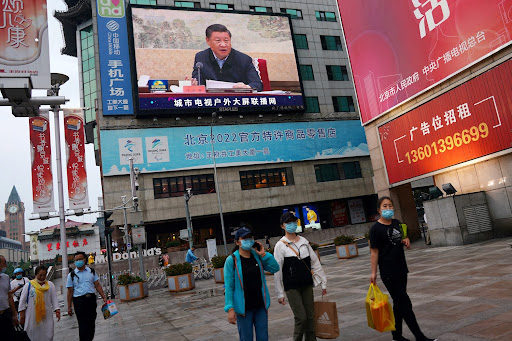Trisha Ghosh, Pune
As 2023 unfolds, the prospects for China’s economy seem bleak. The economic model that the country has implemented for 40 years now is beginning to lose its effectiveness. As per The Wall Street Journal, which recently reported on China’s increasing economic slowdown, “this could be the dimming of a long era”.
In 2022, China’s total debt levels increased to 300 percent of the GDP of the same year, as per data from the Bank for International Settlements. Debt levels can also be attributed to local governments and state-owned corporations. A few more direct causes of the bleak outlook are high levels of unemployment among the youth, a significantly low birth rate, and the country’s position in heightened geopolitical conflicts. The latter has led to foreign investments and spending going down in the country. Low birth rates mean that China comparatively has and will have a much lower proportion of youth. The lack of employment opportunities adds to this crisis by reducing the potential for economic growth.
Chinese politicians have begun to recognise the issues created by the growth model that has been used for decades now. Chinese President Xi Jinping has criticised the country’s reliance on borrowing for construction, contending that China needs to update its model for economic growth and development and that there must be more comprehensive strategies than simply focusing on investments.
Indeed, a much-needed intervention is stimulating consumer spending, which China is currently struggling with as a consequence of a drastic fall in prices over the months. Deflation in the long term actually reduces spending and production incentives, causing lower salaries, unemployment, and mass layoffs. Another related issue is the falling prospects of the real estate market. Extreme borrowing in the property sector has led to the construction of property that is left unsold as demand is lower than supply.
George Magnus, a research associate from Oxford University’s China Centre agrees that China must reduce emphasis on construction and state policies. It must focus on boosting household consumption and incomes, social security, and taxation to get itself out of the current crisis.
